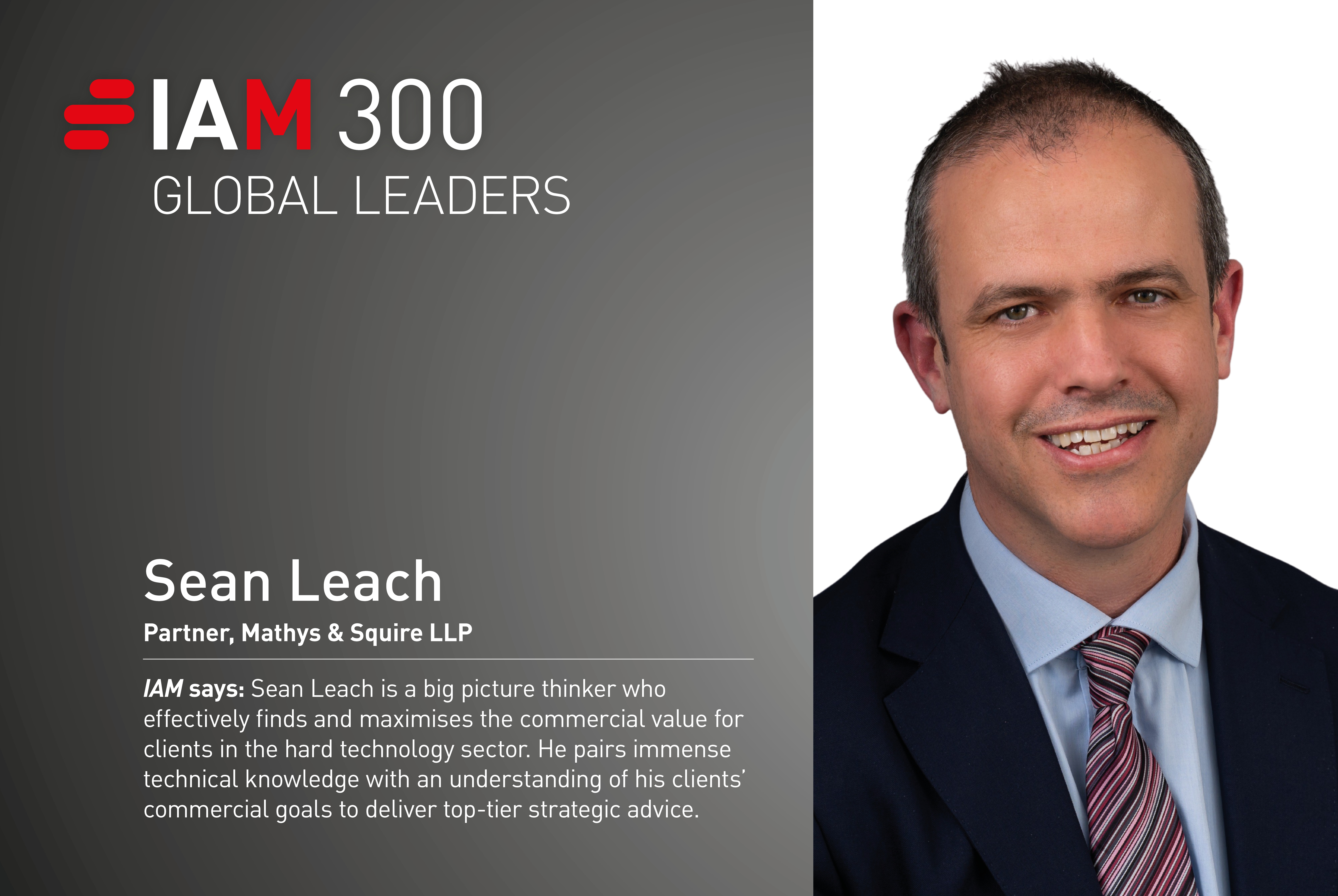Sean Leach
What is your proudest professional achievement to date, and why?
I am enormously proud of the team I have helped to build here at Mathys & Squire. Together we have established a culture that allows each member of a broad multidisciplinary team to contribute to the areas in which their talent and expertise can really shine. For clients, this means consistent technical excellence, no matter the area of intellectual property or commercial IP strategy. It means continuity of service and of the bandwidth required to keep pace with work volume. Just as importantly, our attorneys have the opportunity to develop to their full potential and to learn all aspects of IP practice with support from expert and highly experienced colleagues. Nobody is flung into the deep end and expected just to manage. Nobody here dabbles. We provide rigorous advice and excellent service from a happy team.
What are two primary differences between drafting and prosecuting patent applications before the UK Patent Office and the EPO?
The primary differences are the timeline and the standards that apply to inventive step and amendment in prosecution. The United Kingdom’s compliance period and the deadline for filing divisional applications means that the timeline for completing an entire family may, in some cases, be little more than 12 months after examination has first begun. By contrast, the EPO may take 18 months to issue a single office action. The compressed timeline means that UK examiners are responsive, pragmatic and very happy to work informally by telephone.
The UK approach to inventive step is purported to be equivalent to the EPO’s problem and solution approach. Experienced practitioners know that, in some areas at least, the UK approach can yield different and more favourable results. This is further helped by the UKIPO’s more pragmatic and technological approach to claim amendment – the result is a more applicant-friendly jurisdiction in most technical areas (software being a notable exception).
There is increasing talk about the importance of trade secrets. What are your top recommendations for incorporating these into a company’s IP monetisation strategy?
The most important thing is to make conscious decisions and to keep track of them. If you want to benefit from trade secrets, as distinct from more routine confidential information, you and your colleagues need to know what trade secrets you have, what policy you have to track them and how to follow it to protect them.
The advice I find myself giving more often than anything else is to keep proper records. These don’t need to be complex. They just need to show what has been revealed to who, when and under what agreement. I love working with engineers, but I have never met one who takes complete notes of meetings under an NDA. Solve this problem by writing down in advance what is to be discussed and then confirming it in writing with the other party after the meeting.
As for monetisation, both trade secrets and confidential information more broadly can be enormously valuable commercial tools. The most valuable and effective aspect of the intellectual property underpinning many licence deals is the confidential information. Provided it is being protected properly by the licensor, it need never expire, and so it can support a royalty bearing licence many years after patents might have expired.
What common mistakes do international companies make when it comes to patent strategy in the United Kingdom – and how can they avoid them?
Honestly, most international companies are sufficiently sophisticated that they don’t make many mistakes. The most common misconception is that the UK procedure will be identical to the EPO or to the USPTO and they can just take the same approach. In some ways this works, and there are efficiency gains from it, but the UKIPO is a more liberal and applicant-friendly jurisdiction than most. Perhaps not all companies fully take advantage of that.
Which aspect of your work do you enjoy most and why?
I most enjoy seeing clients succeed and helping them to use intellectual property to solve commercial problems. Whether that comes from building an IP strategy to clinch a deal between a small technology supplier and a larger company, or from using EPO oppositions to clear patent risk for a product launch, the pay-off is knowing that you’ve contributed to their success.
Sean Leach
Partner
[email protected]
Sean Leach works in Mathys & Squire’s IT and engineering team, specialising in electronics, medical devices, network communications and software. His work includes drafting and prosecuting patent applications, as well as advising on IP strategy and agreements for clients, multinational corporations and start-ups. Mr Leach has exceptional expertise in dealing with the exclusions from patentability of computer programs, mathematical methods, methods of diagnosis, and methods of treatment by surgery and therapy.
